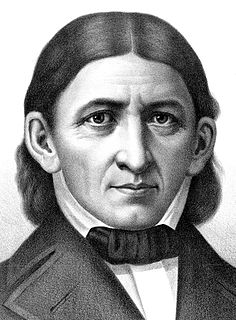A Quote by Francois de La Rochefoucauld
Considering how little the beginning or the ceasing to love is in our own power, it is foolish and unreasonable for the lover or his mistress to complain of one another's inconstancy.
Related Quotes
He who is himself crossed in love is able from time to time to master his passion, for he is not the creature but the creator of his own misery; and if a lover is unable to control his passion, he at least knows that he is himself to blame for his sufferings. But he who is loved without reciprocating that love is lost beyond redemption, for it is not in his power to set a limit to that other's passion, to keep it within bounds, and the strongest will is reduced to impotence in the face of another's desire.
Constancy in love is a perpetual inconstancy which fixes our hearts successively to all the qualities of the person loved--sometimes admiring one and sometimes another above all the rest--so that this constancy roves as far as it can, and is no better than inconstancy, confined within the compass of one person.
A lover, when he is admitted to cards, ought to be solemnly silent, and observe the motions of his mistress. He must laugh when she laughs, sigh when she sighs. In short, he should be the shadow of her mind. A lady, in the presence of her lover, should never want a looking-glass; as a beau, in the presence of his looking-glass, never wants a mistress.
The mind grows by self revelation. In play the child ascertains what he can do, discovers his possibilities of will and thought by exerting his power spontaneously. In work he follows a task prescribed for him by another, and doesn't reveal his own proclivities and inclinations; but another's. In play he reveals his own original power.
There are three kinds of love;
unselfish, mutual, and selfish.
The unselfish love is of the highest kind;
The lover only minds the welfare of the beloved and does not care for his own sufferings.
In mutual love the lover not only wants the happiness of his beloved;
but has an eye towards his own happiness also. It is middling.
The selfish love is the lowest. It only looks towards its own happiness,
no matter whether the beloved suffers weal or woe.
In the beginning there was Isis: Oldest of the Old, She was the Goddess from whom all Becoming Arose. She was the Great Lady, Mistress of the two Lands of Egypt, Mistress of Shelter, Mistress of Heaven, Mistress of the House of Life, Mistress of the word of God. She was the Unique. In all Her great and wonderful works She was a wiser magician and more excellent than any other God.
God lends us a little of His reasoning powers and that is how we think: He puts a little of His love into us and that is how we love one another. When you teach a child writing, you hold its hand while it forms the letters: that is, it forms the letters because you are forming them. We love and reason because God loves and reasons and holds our hand while we do it.
In France, for example, it is not unusual for a husband to have a wife and a mistress. However, if in addition to these two he's also having a fling with a fringe tootsie, both the wife and the mistress are outraged and the combination lover, husband, and cheat may well wind up with a large French bread knife between his ribs.
Custom is a violent and treacherous school mistress. She, by little and lithe, slyly and unperceived, slips in the foot of her authority; but having by this gentle and humble beginning, with the benefit of time, fixed and established it, she then unmasks a furious and tyrannic countenance, against which we have no more the courage or the power so much as to lift up our eyes.
Does the open wound in another's breast soften the pain of the gaping wound in our own? Or does the blood which is welling from another man's side staunch that which is pouring from our own? Does the general anguish of our fellow creatures lessen our own private and particular anguish? No, no, each suffers on his own account, each struggles with his own grief, each sheds his own tears.



































